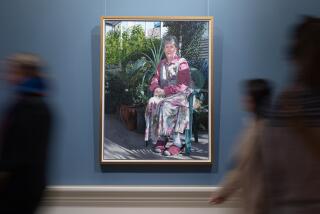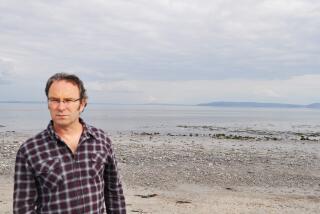John McGahern, 71; Irish Novelist Drew From His Rural Roots
- Share via
DUBLIN, Ireland — John McGahern, the writer known for semi-autobiographical portraits of rural life and widely praised as one of Ireland’s great modern novelists, died of cancer Thursday at a Dublin hospital, his family and friends said. He was 71.
It was not announced what kind of cancer McGahern had or how long he had been ill.
After six novels, four collections of short stories and a play, McGahern published his memoir, “All Will Be Well,” last year.
His body of work reflected his upbringing in County Roscommon: a world dominated by grief for his mother, who died of cancer when he was a boy, and the twin tyrannies of the Roman Catholic Church and his father, a police sergeant who savagely beat McGahern and his five sisters.
Writing in the Los Angeles Times, Thomas McGonigle called “All Will Be Well” an “icy, meticulous delineation of the torment that a father inflicted upon his children.”
“At the same time,” McGonigle added, “McGahern creates a touching portrait of enduring Irish womanhood in the figure of his schoolteacher mother.”
As a novelist, McGahern earned considerable notoriety for his second book, “The Dark.” Published in 1965, the book is a bleak coming-of-age story with hints of a sexual relationship between a young man, his father and a Catholic priest. It was banned in Ireland and denounced from the pulpit as pornographic.
The furor over the book forced McGahern to quit his teaching job in a Catholic high school and leave Ireland for Europe.
He resettled near his childhood home five years later and wrote his two most celebrated works, “Amongst Women” -- nominated for Britain’s Booker Prize in 1990 -- and “That They May Face the Rising Sun” in 2002.
John Banville, another of Ireland’s most respected authors, praised McGahern’s wit and power of observation -- and rued the fact his work had not received much recognition outside the country.
“ ‘Amongst Women,’ which was his masterpiece -- if there was any justice at all, it should have won the Booker Prize. It would have given him the international recognition that he didn’t have,” Banville said. “The literary world we live in now is so glittery. His novels were so quiet, perhaps they didn’t travel well. But they will.”
McGahern’s trademarks included a loving attention to the detail of Ireland’s rural life: its plants and animals, its textures and smells -- and the witty idiom and darker insular dynamics of its people.
His final novel, “That They May Face the Rising Sun,” charted the social and seasonal changes in a border farming community without relying on conventional dramatic hooks -- or even much plot.
In an interview last year, McGahern said he had attempted “to take plot and everything else out of the novel and see what was left.”
“In fiction, the most powerful weapon the writer has is suggestion. I think that nearly all good writing is suggestion, and all bad writing is statement. Statement kills off the reader’s imagination. With suggestion, the reader takes up from where the writer leaves off,” he told the Guardian newspaper.
McGahern shunned the limelight, writing for a few hours each day and also working part time as a farmer.
When Ireland’s censorship board banned “The Dark,” he barely commented on the matter and expressed no bitterness.
“For me, all that matters is whether a book is well written or not. Once a book is published, the less a writer has to say about it the better,” he said. “That’s why I never protested the banning. I thought it was a joke, the censorship board, and by protesting I would give them too much honor. Besides, a book has a life of its own. Once it is written, it belongs to its readers.”
McGahern is survived by his wife, Madeline, an American photographer, and his sisters. Funeral arrangements were not announced.
More to Read
Sign up for our Book Club newsletter
Get the latest news, events and more from the Los Angeles Times Book Club, and help us get L.A. reading and talking.
You may occasionally receive promotional content from the Los Angeles Times.








